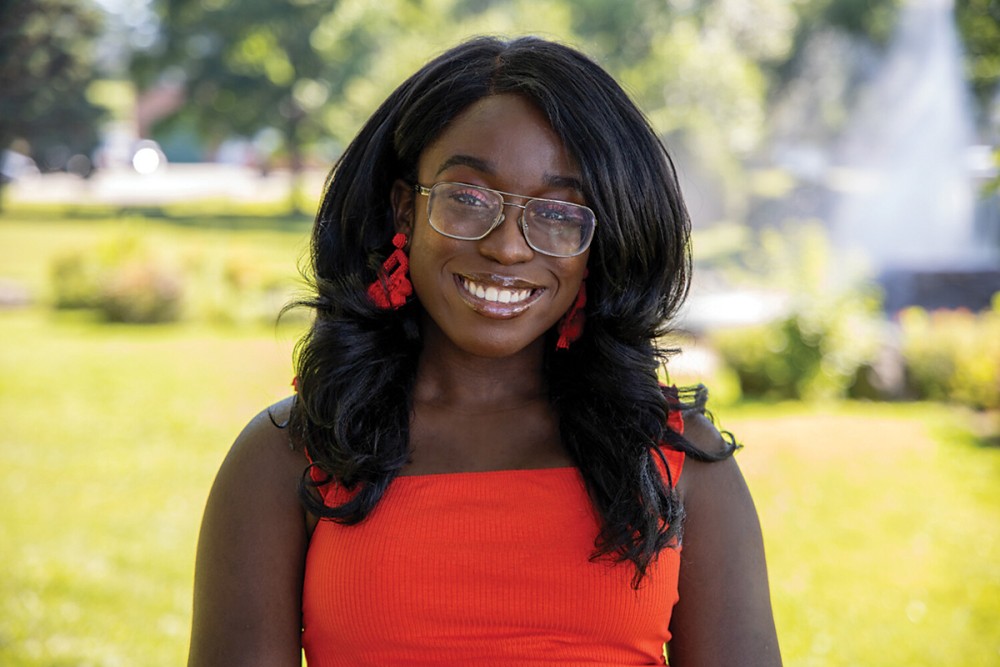Amara Ifeji works at the intersection of climate and racial justice
The Nigerian-born activist grew up in Maine playing with the dirt—and experiencing environmental racism.

As a child in Maine, Amarachukwu Ifeji loved to play outdoors. “I started off exploring in the dirt, and up until 18 years old, I was still playing in the dirt,” Amara laughs. “I think that pretty much holds for all environmental stewards or climate justice activists—that call or connection to place,” she tells me. Amara has made a significant impact on her home state as a climate and racial justice activist. “Now that I have grown, I have come to understand that my place is here. That’s where God has called me to,” she says. “I want to make the state I love a better place to live, work, and raise a family in.”
Amara spent most of her adolescence wanting to leave Maine. The state’s population is almost 95 percent White and just 2 percent Black. In a video for Connecticut Public Radio, Amara speaks of her experience as a young Black woman growing up in Maine. “In Maine there are many sundown towns, where I just really cannot be found after a certain time,” she says, using a term that refers to all-White communities that discriminate against Black people, intimidate them, and discourage their presence after dark. “Those are the kinds of things that my mother was fearful of—people who harbored hate for people who look like me.”
Amara was born in Nigeria in 2001. Her family moved to the United States in 2004, first living in Maryland and later moving to Maine. Her parents experienced professional and educational setbacks in their new home country. Though Amara’s father worked as a lawyer in Nigeria, in the United States he had to attend school again, because his education and experience did not afford him the same opportunities here as they had there. Similarly, while Amara’s mother received two degrees in Nigeria, many of the credits she had earned did not transfer when the family uprooted and moved to the United States.




